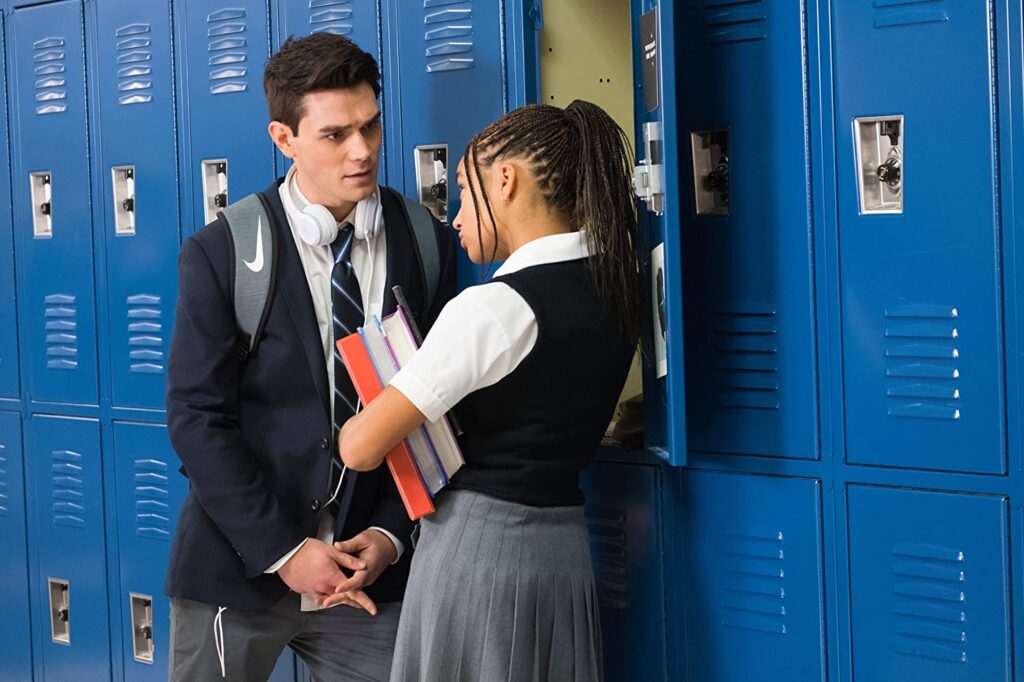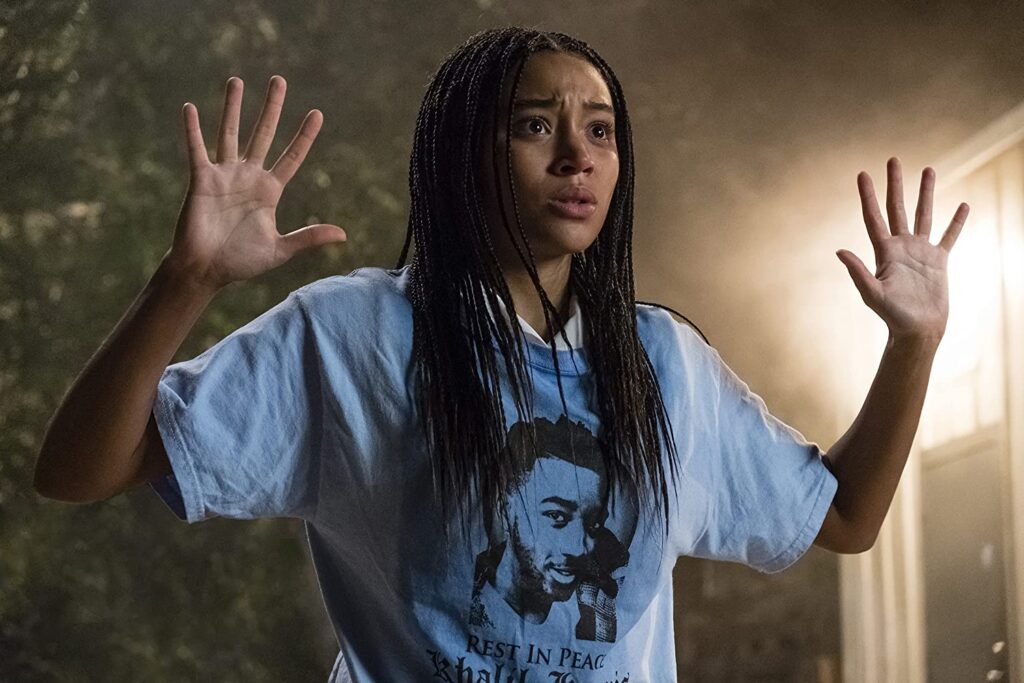With desperate calls to end racial injustice currently at their most paramount after the death of George Floyd in May, 2020, it is urgent we turn to sources that offer educational and topical insights into toxic white supremacy. George Tilman’s “The Hate U Give” is an extremely well executed example of this. The political film is far more than a coming-of-age drama. It metaphorically stands up with its fist in the air to scream the message that black lives do matter, and is unafraid to bite back at institutional racism in America.
The 2018 adaptation of Angie Thomas’s novel follows the thoughts of 16-year-old Starr Carter, played superbly by Amandla Stenberg. As an African American teenager growing up in Garden Heights, Starr wrestles with her black identity, boyfriends, and fitting in at her new school, Williamson, predominantly made up of white privileged students. Starr explains how she feels she must be Starr version two at Williamson, a version that is approachable, polite, and inoffensive to compensate for her black identity. Yet at home, in Garden Heights, Starr is herself and comfortable in her black community. Incredibly raw and honest, “The Hate U Give” does not shy away from the daily battle of a young, black girl facing an abundance of pressure from a complicated, divided society.
Perhaps the most shocking and brutal moment of the film is when Starr’s childhood best friend, Khalil, is brutally murdered in front of her by a white police officer when they are pulled over for no apparent reason. This is where the film extends beyond a social drama and becomes a political statement. We witness the progression of Starr, from a scared victim afraid to testify the murder of her friend in fear of destroying her reputation at school to an empowered, brave leader igniting a national campaign for justice for Khalil and for an end to a corrupt system. Starr is ironically the star of the show, using her light to deliver the message that Khalil did not just die but that he lived and his life mattered. The plot can be applauded for its honesty, its emotion, and for its ability to stir a blend of frustration and anger through its realistic nature. The realism is heightened with the use of a modern soundtrack and colloquial language, allowing it to appeal and educate a young audience.

Tilman certainly was not lazy when it came to character development. I enjoyed learning about Starr’s family, such as her intimate relationship between her and her protective, proud father, Maverick. Particularly interesting was her relationship with her white friend Hailey and white boyfriend Chris. Hailey symbolised the persistence of stereotypical racial perceptions of white society and Chris, confused, described to Starr how he did not see her colour. Yet Starr explains how in order to see her, he must see her blackness. The film is a web of Angie Thomas’ powerful quotes and Tilman also cleverly utilises a comparative filter; when filming Williamson, a grey, whitewashed filter which blends the faces of the students is applied, contrasting with the warmer tones applied to scenes in predominantly black Garden Heights.
Only one criticism could be explored in that it would have been insightful to learn more about Star’s half-brother Seven’s experience, and his complicated relationship with his mother. Besides from this, I felt incredibly close to Starr and undeniably an ally in her fight. As a white person, “The Hate U Give” offered an vital lesson on race; and although I will never understand the consistent struggle it is to be black or how it truly feels, I felt my eyes had been opened to the gravity of the issue and to the urgency for widespread change and acceptance. Tupac once explained the idea of ’Thug Life,’ and the acronym behind it: “T-H-U-G L-I-F-E. The Hate U Give Little Infants Fucks Everybody.” Yes, it certainly does, and we must be aware that western society was built on racial inequality and slavery—and that this means the cycle of abuse and structural inequality is difficult to break.
Overall, “The Hate U Give” is an outstanding film, loaded with entertainment and educational value. I recommend that everyone should watch it, particularly white people in order to get a better understanding of racial prejudice and white privilege from the points of view of a POC.


